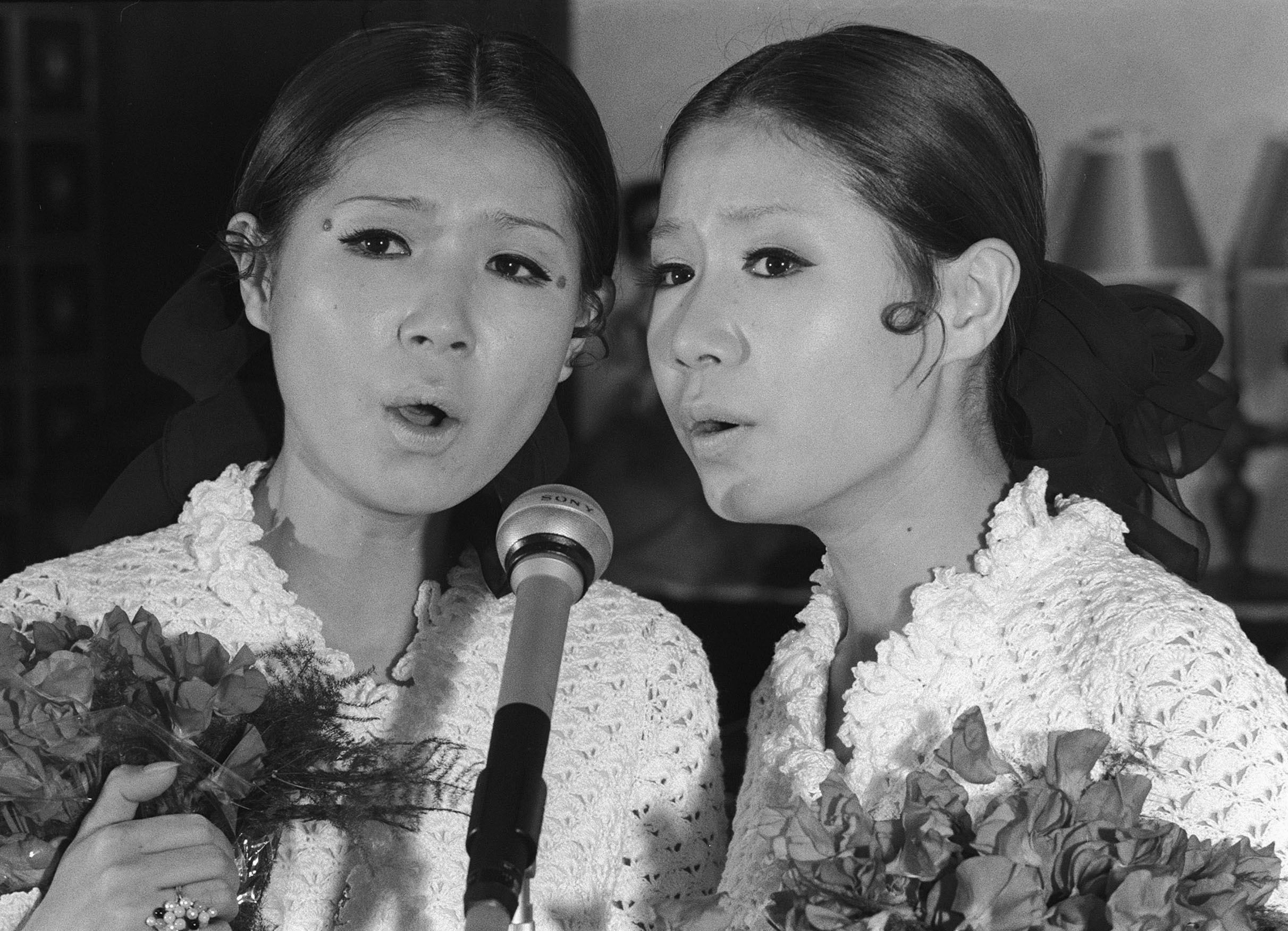I learned of the death of Yumi Ito, the last remaining member of 1960s pop duo The Peanuts, while battling a giant moth that had found its way into my apartment.
This interval of lepidopteran agitation was strangely apt, however, since Yumi and her identical twin sister/bandmate Emi Ito were perhaps most famous as the diminutive pixie ambassadors for Toho film studios' god-beast Mothra. Beginning in the monster's eponymous 1961 film, the duo's high-pitched harmonies formed the eerie mantra that summoned forth the moth-like protector of Earth.
The harmonies that made The Peanuts' music so irresistible to giant moths were key to their success with mere humans, too. In recent years, the anachronistic way Japan has regulated dancing under the same set of laws that govern prostitution has provoked ridicule, but in the 1950s and '60s the jazz clubs that incubated the live scene weren't always the most salubrious places. Usually run by the yakuza, and often with the U.S. military as a key supplier of both audience, and new music and styles, the environment was a far cry from the showbiz bubble that surrounds today's J-pop stars. To make an impact in this environment, you had to be able to sing.



